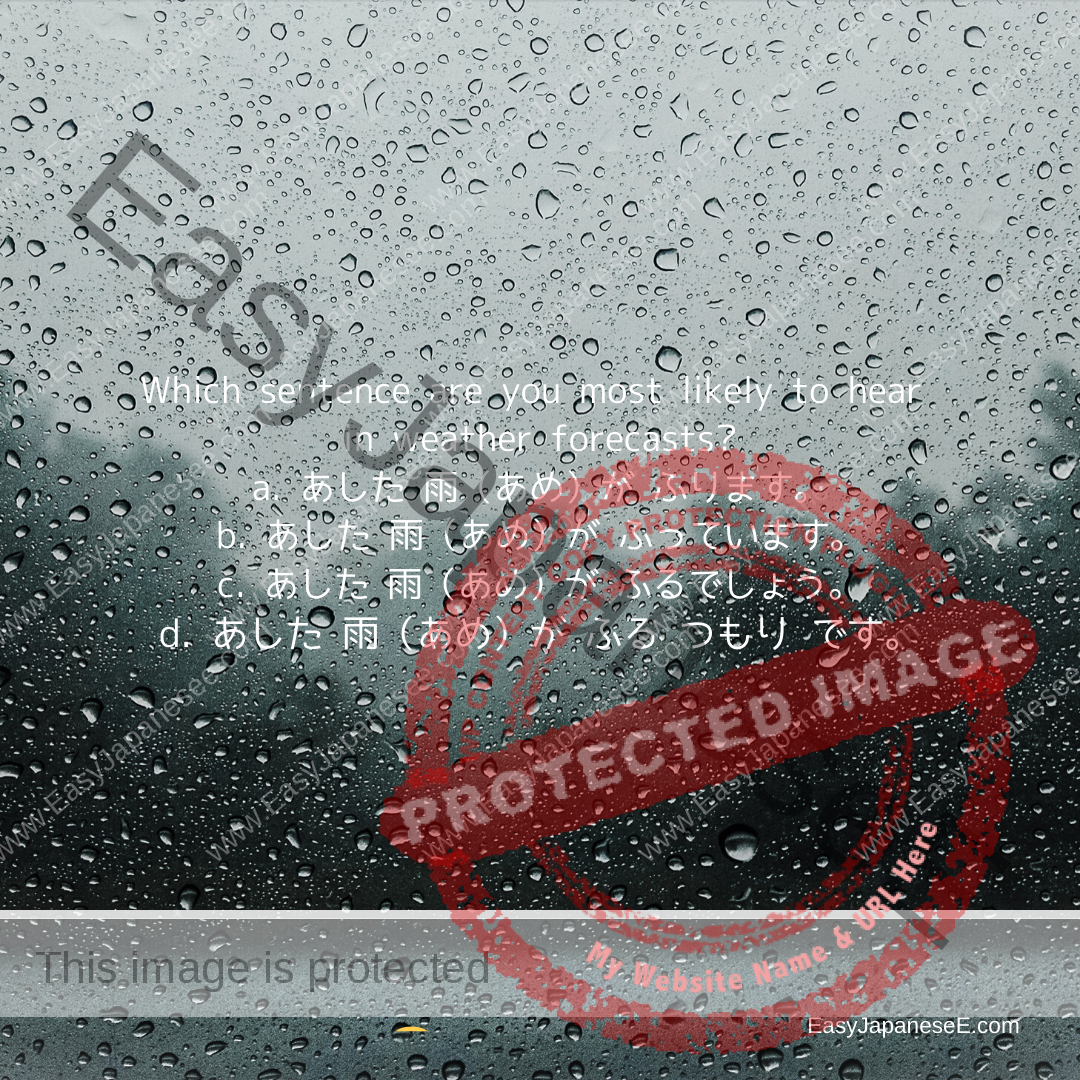
Which sentence are you most likely to hear in weather forecasts?
a. あした 雨(あめ)が ふります。
b. あした 雨(あめ)が ふっています。
c. あした 雨(あめ)が ふるでしょう。
d. あした 雨(あめ)が ふる つもり です。
Today’s Grammar Point: ~でしょう
Grammatically でしょう is called a conjectural auxiliary verb (a bit mouthful, isn’t it?). It is used to make a prediction or to express your guess.
Connection
- [dictionary form verb] + でしょう
- [noun] + でしょう
- [いadjective] + でしょう
- [なadjective] + でしょう
でしょう’s plain form is だろう (casual) であろう (literary).
Examples with a Verb
- あしたは はれる でしょう。
It will be sunny tomorrow. - あさっては くもる でしょう。
It will be cloudy the day after. - しゅうまつは ゆきが ふる でしょう。
It will snow over the weekend.
Examples with a Noun
- あしたは いい てんき でしょう。
Tomorrow will be a nice day. - あさっては はれ でしょう。
It will be sunny the day after. - しゅうまつは ゆき でしょう。
It will snow over the weekend.
Examples with an いadjective
- あしたは かぜが つよい でしょう。
It will be windy tomorrow. - らいげつは あめが おおい でしょう。
We will have lots of rain next month. - はれの ひは すくない でしょう。
There won’t be many sunny days.
Examples with a なadjective
- かさが べんり でしょう。
Having an umbrella will be convenient. - てんきよほうを みることが たいせつ でしょう。
It will be important to watch weather forecast. - くるまで いくのが かんたん でしょう。
It will be easier if you go in a car.
Answer to Today’s question: C
If you are very, very sure about rain falling tomorrow, you can say a. あした 雨(あめ)が ふります。but it is very unlikely to hear that in weather forecasts – they don’t want to take on that kind of responsibility!
b. 雨(あめ)が ふっています describes the CURRENT condition, so you cannot use it with あした.
c. つもりです expresses the subject’s intention. As you cannot talk on behalf of the rain, you cannot use つもり here.

